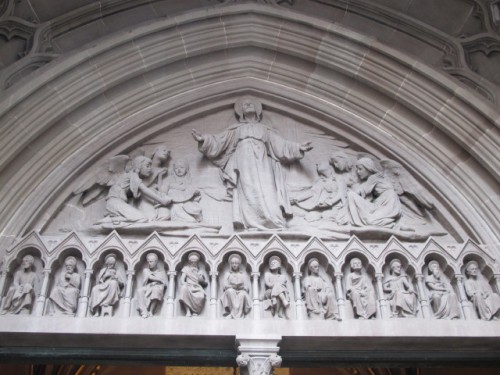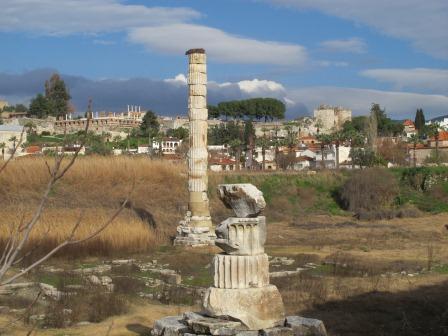
Every few years I have students in my Pauline Epistles class form groups the last day of class and take 20 minutes to write a letter from Paul to Taylor University. Each student votes on his or her favorite letter, and then I publish it here! This year’s winners were Darah, Garrett, and Rylie:
“Paul, an apostle and slave of Jesus Christ, to the saints at Taylor University, grace and peace to you. I thank God always when I remember you in my prayers because your faith and understanding are known all over the world: Christ is at work in you to make His name known. I pray that the Spirit would empower you to grow in the knowledge and truth of Him who sanctifies you.
I appeal to you, brothers and sisters, in the name of our Lord Jesus Christ, that there be no divisions between you over some complicated questions. These are indeed important, but be careful not to allow them to distract from the gospel that you have believed, for Christ has redeemed all those who believe and has unified us, and it is by this unity that our gospel is readily advanced. Do not quarrel over petty things, but remember the mission to which you were called.
Have you not heard it said that the greatest commands are these: “Love the Lord your God with all your heart and with all your soul and with all your mind and with your strength,” the first and greatest commandment, and the second, which is like it: love your neighbor as yourself, for indeed all the Law and the Prophets hang on these two commandments, and this is what Christ Himself did while among us. For while He was here, He did not hold Himself above those whom He taught, but in love made Himself as a servant, though He was Himself the true image of God. In this way, you should serve one another as God in Christ has served us; if you meet the one with whom you quarrel, you shall surely help him, and shall not bear any grudge. Do you not know that one day you shall all sit together with Christ in heaven? Hold fast to the truth to which you have been taught: our disagreements here are but little when considering the glory of the Father that Christ has shared with us through the gift of the Holy Spirit.
To Him who is able to do a great work in you, to Him be the glory from all peoples, at all times, forever and ever, Amen. Send my greetings to the churches of Grant County. The peace of Christ Jesus be with you. Amen.”








